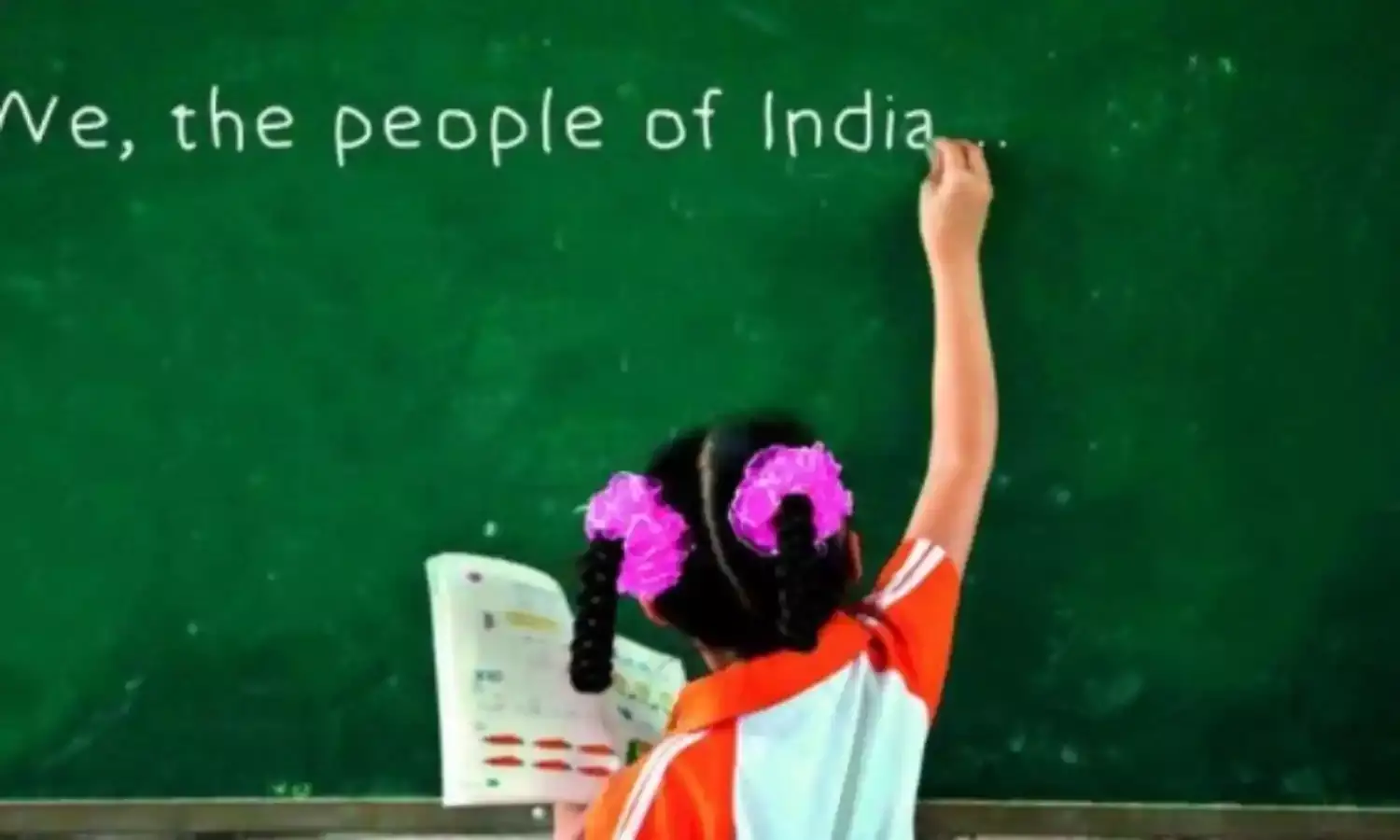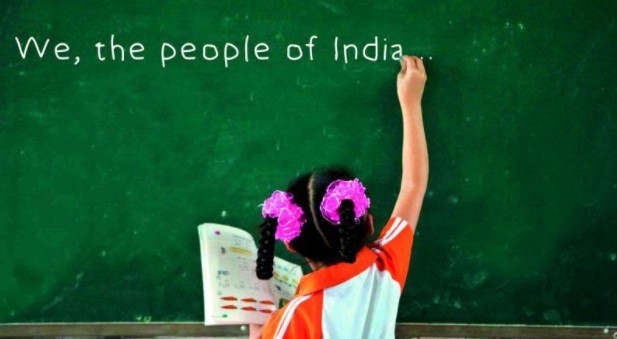Of Duties and Rights
The Lamp

Our PM has spoken. To quote him: "We have to light the lamp of responsibilities and obligation inside the heart of every citizen of the country. Then only the country will reach new heights", and “... society should stand on the foundations of equality and social justice”. [“Efforts made to spoil India’s reputation globally; our duty to present the correct picture: PM Modi at Brahma Kumaris’ event”; https://www.timesnownews.com/india/article/we-are-witnessing-the-emergence-of-new-india-society-should-stand-on-pillars-of-equality-and-social-justice-pm-modi/851223; TimesNowNews.com; January 20, 2022].
To put it in context, PM also reportedly spoke words to the effect that, in the last 75 years since Independence, we have only talked about our rights, and wasted time in struggling and fighting for our rights, but that we forgot our duties and did not prioritise our responsibilities.
It is interesting to think about who is the “we” who have failed in performing our duty, who is the “we” who are to prioritise responsibilities, and who is the “we” who have wasted time struggling and fighting for rights. For convenience, let us call them WE-1, WE-2 and WE-3 respectively, all part of “WE THE PEOPLE of India”.
WE-1. This is, without doubt, Governments at State and Centre, State Assemblies and Parliament, over 75-years. The duty of Governments and individual elected representatives sworn to Public Office, is:
# To adhere to the spirit of the Constitution as in the Preamble, in all their social, economic and political activities.
# To govern according to the Directive Principles of State Policy.
# To perform their Fundamental Duty as citizens (although Article 51A was inserted only in 1976 by the 42nd Amendment) and not as “super-citizens”.
# To adhere to their Oath of Office, as public servants.
Can any political party, national or regional, or their candidates elected to Assemblies and Parliament, having served as ministers in State and Central governments in the past 75-years, claim that they have performed their duty?
WE-2. Prioritising responsibilities is through policy-making and planning processes. In the Planning Commission of India and presently the National Institution for Transforming India, the PM is ex-officio Chairperson. Likewise, State CMs for State Planning Commissions.
Elected representatives in treasury and opposition benches have the duty of making use of the capabilities of Planning Commissions, to formulate pro-People policies, plans, proposals, projects, and programs, and debating them in State Assemblies and Parliament. Law-making comes within this ambit.
Which political party, national or regional, or their candidates elected to Assemblies and Parliament, having served as ministers in State and Central governments in the past 75-years, can claim to have formulated policy or planned according to the Directive Principles of State Policy and the spirit of the Constitution?
WE-3. These are the ‘troublesome’ people, always agitating, demanding their rights. Governance would be so simple without them. But sadly, WE-1 and WE-2 need WE-3 for votes now and then.
R.K.Laxman’s cartoon showing a minister lecturing poor rural folk at a Rural Development Office, was captioned, “You must think on progressive lines, and ask for railways, electricity, telephones, and not demand drinking water all the time”. It speaks very loudly of the priorities of “development” which Governments hold, even to the present.
There are a “million revolutions” – People’s movements – in our country, mostly starting from the 1960s, but intensifying after our 1991 New Economic Policy. The Farmers Movement is most recent. These movements are poor and ordinary people protesting against loss or compromise of land or livelihood, due to Governments’ plans and projects. Most of these plans and projects have also had adverse environmental effects, and benefitted the corporate sector – incidentally the main reason for NPAs – while elected representatives have brazenly multiplied their personal wealth.
The actions and inactions of WE-1 & WE-2 have had little beneficial effect on WE-3, which is the humongous and increasing numerical majority. The reality of economic inequality in our country is staggering. Millions remain hungry, malnourished and ill on a daily basis, because plans, proposals, projects, and programs are not framed for their benefit. A small minority flaunts its wealth. Governments invest public funds in huge statues, expensive architectural make-overs and mega-projects, and public servants purchase expensive vehicles and aircraft with public funds.
Dalits, at the bottom of WE-3, continue to be humiliated, beaten, raped, killed, and often police charge the victims while the perpetrators proudly walk free. This is also true of most communal lynchings. Social justice is at its lowest ebb. Politicians remain busy in petty politicking, chicanery and corruption, while some resort to grandstanding.
WE-3, often assisted by social, environmental and legal activists (some recently re-named “urban naxal”), have knocked on the doors of Courts of Law for justice, but mostly with little success. Indeed, many of these movements have been fighting, struggling, demonstrating and demanding that WE-1 and WE-2 should do their duty, and adhere to the letter and spirit of the Laws, and the Constitution. In addition, WE-3 have been demanding that WE-1 and WE-2 should not violate the lawful rights of WE-3.
It is difficult to decide whether our Hon’ble PM spoke about duties, responsibilities and rights, after due consideration of all that has happened over the past 75 years.
Several questions come to mind. Who is the “we”, to whom our Hon’ble PM referred? Does he really believe what he reportedly spoke? Or was he delivering a purpose-scripted speech to a particular audience?
Looking away from the intense social and economic sufferings and tribulations of the huge majority of our 1.35-billion population, appears heartless.
If all citizens are “to light the lamp of responsibilities and obligation inside the heart of every citizen”, does not providing the lamp, fuel and matches to light it, devolve upon the country’s chief executive? Is it not apparent to the common citizen, that a lamp that has been lit in very recent times, is not one of “responsibilities and obligations”, but a lamp fuelled by mistrust, fear, hate and violence? Everyone knows who has lit it. There is apprehension that its spreading flames can burn down the country that we love.
Major General S.G.Vombatkere is retired from the Indian Army.




